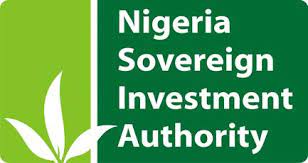
Tanko Mohammed
The Nigeria Sovereign Investment Authority (NSIA) says it had a strong year in 2020, recording N160.06 billion in total comprehensive income amounting to 343 per cent growth compared to N36.15 billion in 2019.
Mr Uche Orji, the Managing Director, revealed this in a virtual media conference on the presentation of the NSIA’s 2020 Audited Financial Statements and Performance Review on Tuesday in Abuja.
Orji attributed the growth, in spite of the challenges of COVID-19, to strong performance from its investments in international capital markets, improved contribution from subsidiaries and affiliates and exchange gain from foreign currency positions.
He added that the authority achieved 33 per cent growth in Net Assets amounting to N772.75 billion as against N579.54 billion in the previous year.
He also said that the NSIA received additional contribution of 250 million dollars and provided first stabilisation support of 150 million dollars from the Stabilisation Fund to the Federal Government.
According to him, the authority also received 311 million dollars from funds recovered from late General Sani Abacha from the US Department of Justice and Island of Jersey.
He said that the funds were deployed towards the Presidential Infrastructure Development Fund (PIDF) projects of Abuja-Kaduna-Kano Highway, Lagos Ibadan Expressway and the Second Niger Bridge.
“The 2020 fiscal year was characterised by high volatility and global market uncertainty on account of COVID-19 in the first half.
“However, the authority’s strategic investments generated respectable returns in spite of the impact of COVID-19.
“Notably, NSIA has invested in various private equity and venture capital investment funds to tap into the high-growth sectors.
“NSIA expects that the outlook for 2021 would be positive, however we expect bouts of volatility as global markets adjust and recover from the impact of the pandemic.”
Speaking on some of the projects and interventions the organisation was involved in; he said that it entered a strategic collaboration with BBVGH for cancer treatments.
Orji said that the group was helping in training personnel and bringing in lower costs cancer medicine for those who were in the NSIA-Lagos University Teaching Hospital Cancer Centre.
He also said it had operationalised the NSIA-Kano Diagnostic Centre and the NSIA-Umuahia Diagnostic Centre which were developed as first-rate diagnostic centres with individual investments of 5.5 million dollars each.
For the power sector, Orji said that the NSIA was building a 10 megawatts solar power plant in Kano, which presently was the single largest in Nigeria.
“Expected to be completed at the end of 2022 at a cost of about 15 million dollars, the plant would link industrial customers to an additional source of power supply,” he said.
He said it was also setting up a platform with international Development Finance Institutions (DFIs) to allow it spread across various parts of the country.
In agriculture, through the Presidential Fertiliser Initiative (PFI), it produced 12 million 50 kilogram bags of NPK 20:10:10 equivalent in 2020.
This, he said, brought the total production since inception to over 30 million 50kg bags equivalent, while the number of participating blending plants increased to 44 from less than seven at inception.
Orji added that the NSIA completed construction of 3000 hectares Panda Agric Farm in Nasarawa, the first project of the UFF-NSIA partnership.
He said that the NSIA launched Nigeria’s Innovation Fund to address investment opportunities within Nigeria in Information technology.
According to him, with immediate pipeline it includes data networking, datacentres, software and services as well as Agri-tech and Bio-tech.
Speaking on gas industrialisation, he said significant progress had been made on developing the Ammonia and Diammonium phosphate production plants in partnership with OCP.
For 2021, he said the organisation was looking forward to completing the concession, capital raise and operationalisation of the Lagos-Ibadan Expressway, Second Niger Bridge and Abuja-Kaduna-Kano Highway.
“In the Future Generations Fund, we expect to allocate more capital to venture capital, global equity markets and an increasing exposure to European equities where we had been under exposed in 2020.
“NSIA believes that broad opening of the markets will provide a comprehensive lift to equities. Although NSIA believes the market is unlikely to repeat some of the performance of 2020.
“It is more likely that a broader market recovery will occur with economies opening unlike the case in 2020 in which technology stocks drove market performance.”
The NSIA was set up to manage funds in excess of budgeted hydrocarbon revenues.
Its mission is to play a leading role in driving sustained economic development for the benefit of all Nigerians.
This would be through building a savings base for the Nigerian people, enhancing the development of Nigeria’s infrastructure and providing stabilisation support in times of economic stress.













